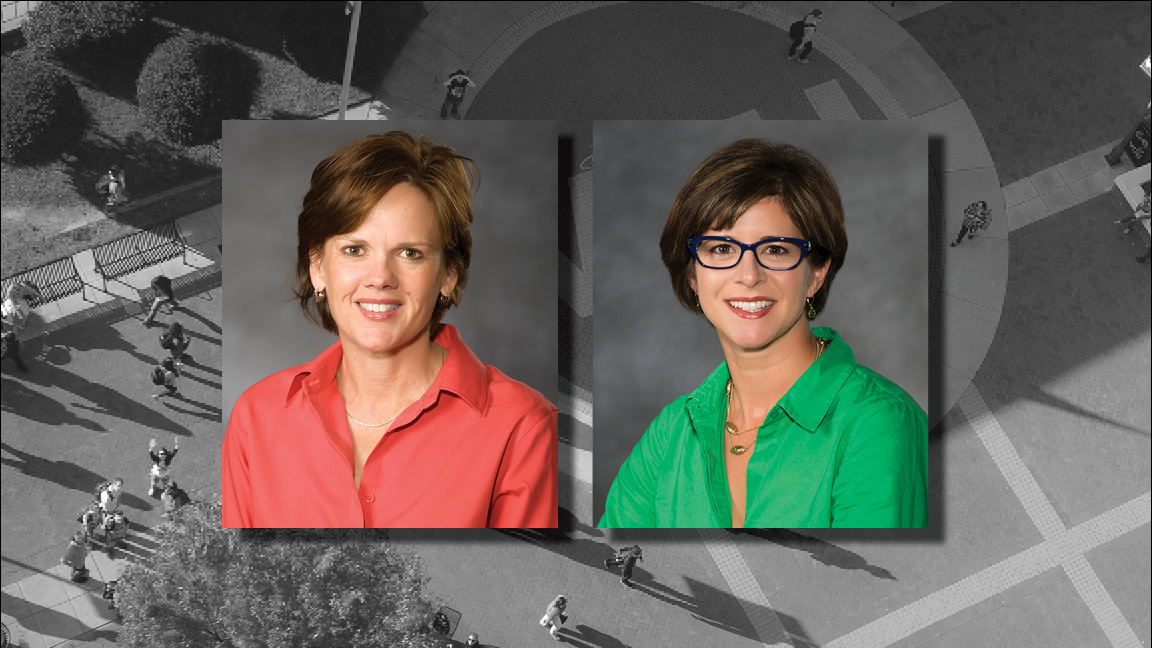News
National Program Offers Pathways for Wilder Faculty

By Tiffany Murray-Robertson
A national program designed to provide holistic support to research faculty in academia is proving to be an invaluable resource for faculty at the Wilder School.
In November, associate professors Sarah Jane Brubaker, Ph.D., and Meghan Gough, Ph.D., were selected to participate in the 2018 Summer Faculty Success Program (FSP).
Developed by the National Center for Faculty Development & Diversity, of which VCU is an institutional member, the FSP prepares full-time tenured and tenured track faculty to significantly advance their scholarly productivity while enriching their work-life balance.
A virtual boot camp delivered over the course of 12 weeks, the FSP features empirically proven strategies for career planning, research production, time management and network building.
Participants are also paired with a discussant group and a faculty mentor from one of the NCFDD’s diverse network of scholars. FSP faculty mentors represent a reported 450 colleges and universities nationally and provide “intense accountability, coaching and peer support” to mentees.
Brubaker and Gough are among five faculty members chosen to participate in the 2018 Summer FSP across VCU’s Monroe Park and medical campuses. Each VCU participant, who was nominated by a chair or department head and chosen by a panel of senior scholars, will receive a grant of $3,250 to offset the cost of the program. Faculty grants are made possible by VCU’s Office of Faculty Affairs.
Easing the transition from administrator to researcher
For Brubaker, director of the Ph.D. in public policy and administration program and certificate in gender violence intervention program, the FSP represents a unique opportunity to re-focus on her research interests in sexual violence, health and intersectionality after more than a decade of administrative experience—including 4 1/2 years as the Wilder School’s first associate dean for faculty and academic affairs.
She said it wasn’t until she began putting together her FSP application that it occurred to her that she had spent 12 of her 14 years on the faculty at VCU as a faculty-administrator.
“A lot of times when faculty get tenure, they become a natural choice for administrative roles. These roles provide valuable experience for faculty members and a more comprehensive perspective on the institution, but they also create notable impediments to scholarly productivity,” said Brubaker.
“When meetings have to be attended and reports have to be delivered—work-life balance and research output are the first things to go by the wayside,” she said.
“It can be easy for tenured administrators to get caught in a non-stop schedule of competing priorities that can make it difficult to transition to the quality and volume of scholarship required for promotion.”
For Brubaker, the FSP provides an important pathway back to scholarship and teaching and has allowed her to set her sights on her next goal—achieving the rank of full professor.
She plans to use the summer and the insight gained through the FSP program to develop a series of publications based on two recent collaborations developed in conjunction with Wilder School faculty: a perception study of a community treatment program for juveniles funded by the Anne E. Casey Foundation and an i-Cubed study of oral and overall health outcomes for children and adolescents from lower socioeconomic backgrounds in Richmond.
She is also working on a book with Cognella press on theorizing gender violence.
Diversifying the routes to and recipients of promotion
For Gough, chair of the urban and regional studies and planning program, the FSP program offers an opportunity to expand the role and visibility of community engaged scholars at the university.
Gough, whose research and teaching are focused on analyzing “the social, political and economic contexts of individuals to inform policy and planning that supports more liveable communities,” relies heavily on local residents and partnerships to inform her research methodologies.
She also serves as a Faculty Fellow for Community Engagement through the Office of the Provost, a position she has used to develop mentorship opportunities for early career tenure-track faculty engaged in similar research methodologies.
“Across the academy, the guidelines for promotion from associate professor to professor expect scholars to demonstrate national and international reputation,” said Gough.
“Community-engaged scholars must demonstrate research rigor and impact within their discipline, and/or within the arena of community-engaged scholarship. As part of this we need to show the capacity to move community change work forward,” she said.
Gough also cited national studies that suggest that women do not seek or earn promotion to professor, in many cases because their ‘service’ in the form of administration can act to derail their competitiveness for promotion.
Like Brubaker, Gough is hoping to use the FSP as a vehicle to transition out of an administrative role and refine her focus as a mid-career academic and outline a plan that will enable her to exceed the impact criteria currently used in the evaluation of candidates for full professor.
“I am hopeful that with this experience I can establish a model for community engaged scholars seeking promotion and advancement in higher education.”